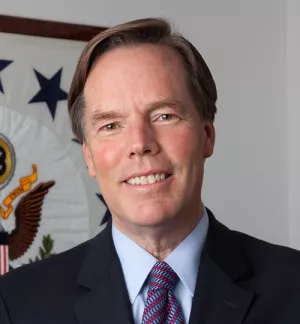SOMETHING IMPORTANT, rare, and very positive happened in the Middle East this week: Iran and the United States agreed to negotiate for the first time in three decades. Iran’s President Hassan Rouhani and Barack Obama signaled in back-to-back UN speeches that they are ready for diplomacy.
This doesn’t mean they will succeed or even make progress on the innumerable disagreements that separate them. But their turn to negotiations is the most important opportunity to end the US-Iran cold war dating to the Carter administration.
Rouhani created this opening by his dramatic shift in tone and style since replacing the lamentable Mahmoud Ahmadinejad as president. Joined by Iran’s new, media-savvy foreign minister, Javed Zarif, Rowhani is leading an aggressive campaign to signal Iran wants a more normal relationship with the United States. Together, they have released political prisoners, made conciliatory statements to world Jews, and pledged to open talks with the United States and other powers on the nuclear issue. Even the habitually taciturn, anti-American Supreme Leader, Ali Khamenei, joined Rouhani in asserting that diplomacy with the United States would necessitate “heroic flexibility” on Iran’s part.
Obama has been waiting for this moment since his 2009 inauguration when he memorably promised to meet Iran half way if it gave up its “clenched fist” defiance of the United States. When Iran initially rebuffed him, he turned to a tougher approach — extending and deepening the Bush sanctions and threatening to use military force should Iran cross the US red line of a nuclear weapon. The sanctions were devastating for Iran. Its currency lost nearly half its value and oil production plummeted by a million barrels per day. One of the reasons Rouhani is desperate to talk is because sanctions have hit hard, causing major public unrest.
Obama’s conservative critics worry Iran will keep the United States at the table in endless talks for sanctions relief while steaming ahead with its nuclear research. That is a legitimate concern. Still, the United States has much to gain and little to lose in opening talks with Tehran. It’s the only way we will ever know if Iran is serious about peace. Obama is thus right to exhaust this diplomatic opening before considering war. And the agenda should include difficult regional issues where Iran and the United States are on opposite sides — Iraq, Syria, Lebanon, and Afghanistan.
The Iranians need to be realistic, however, about early progress. Rouhani and Zarif appear to believe their charm offensive should earn immediate relief from sanctions. They are expecting far too much and need to offer concrete compromises, not just words, if they expect Washington to change course. Iran’s duplicitous arming of the Syrian government and support of Hezbollah in Lebanon and Shiite militants in Iraq as well as continuing mendacity on its nuclear program have created deep distrust in Washington. Until Iran begins to alter its behavior and not just its rhetoric, it shouldn’t expect Obama to lower his guard. At the same time, Obama will need to balance continued toughness with flexibility at the negotiating table to persuade Iran a negotiated settlement is preferable to continued defiance.
The late Israeli leader, Yitzhak Rabin, said famously, “You don’t make peace with friends. You make it with very unsavory enemies.” Those are words a suspicious Israeli Prime Minister Benjamin Netanyahu, already warning about the folly of diplomacy with Iran, might contemplate. Iran presents a rare opportunity for breakthrough diplomacy. Like Richard Nixon with Mao Zedong and Ronald Reagan with Mikhail Gorbachev, Obama understands that presidential leadership is sometimes best engaged by reaching for peace when it appears as an elusive possibility on the horizon. This is one of those moments. Now Congress, Israel, and the rest of us should give him the time and space he needs.
Burns, Nicholas. “An opportunity for breakthrough diplomacy.” The Boston Globe, September 25, 2013





